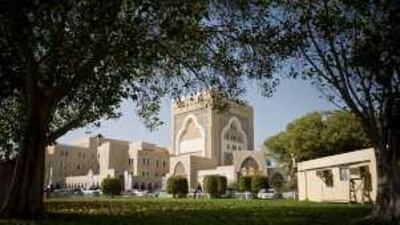Abu Dhabi // Sheikh Khalifa Medical City is to publish performance indicators for patients to review and introduce new procedures to cut human errors, managers have said. By the end of the year, the Abu Dhabi hospital will be publishing the qualifications of doctors and making its medical outcomes available to the public to allow it to assess performance in areas such as cardiology and oncology.
Scott Strong, SKMC's chief executive, said he hoped that other medical institutions would also begin this process, which would allow the public to make informed decisions about their health care provider. "When you go to see your doctor you'll be able to know what to generally expect from care in that institution. With us providing our outcomes the hope is that other health care organisations will follow suit and the public can know what to expect".
Patients who are treated at the hospital will now be seen by several medical professionals, to catch errors or oversights made by others. The registration clerk, nurse and doctor will all confirm the patient's information with the patient. Dr Strong said that this would reduce the chance of error from three in 100 to one in 10 million. Speaking at the unveiling of the hospital's new logo, Dr Strong said: "In any hospital human error will always be present, no one is perfect, mistakes will always be made. In any part of the patient's care we are going to provide a check."
While Dr Strong acknowledged that being asked the same question repeatedly might annoy patients, he said this was necessary to catch human errors. "What we're attempting to do is build processes where if one mistake is made it is caught by two other people. If there is human error then there is someone to recognise that." This follows criticism that an influx of patients last year caused delays and lowered the quality of medical care at the hospital.
"As far as the trust that the patients have in us, we have felt this is something that we need to earn and we feel that we can earn that by letting people know about SKMC." To stop the criticisms of long waits, the primary health care clinics will be moving from accepting walk-in patients to an appointment-based system. "By improving the primary health care clinics fewer patients will need to be seen at the outpatient speciality clinic."
He also said doctors from the speciality clinics would see patients in the primary health care clinics. "We're trying to take our physicians out to the patient instead of relying solely on the patients to see our physicians. "We're trying to enhance our efficiency, such that we're able to see more patients with the same resources." In addition to meeting the needs of their present patient load, these changes will also have to accommodate new patients. The hospital will be expanding the types of insurance it will accept, potentially increasing their number of patients.
"In the past we had agreed with Daman that we would see only a portion of their patients and we are now working with Daman to see all Daman-insured patients." Many of the programmes started last year will grow in 2009. Cardiac care will be expanded and liver transplants will be performed along with kidney transplants. The number of operating theatres will be increased but by how much is not yet known. This year's budget has not yet been released.
Paediatric care will be expanded generally. The accident and emergency section will be expanded with a specialised paediatric emergency care section, and the hospital will also begin paediatric bone marrow transplants. amcmeans@thenational.ae

